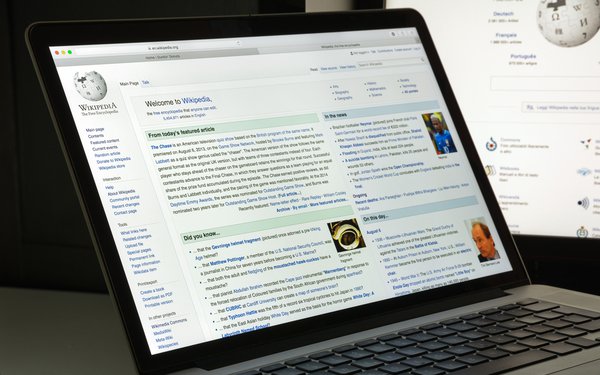
Online encyclopedia Wikipedia and others are urging a federal
appellate court to maintain a block on a Utah law that would require social media platforms to disable “addictive” features on minors' accounts -- including push notifications, content
that plays automatically, and the ability to send messages to users who aren't in the minors' networks.
In a friend-of-the-court brief filed Tuesday with the 10th Circuit Court of Appeals,
Wikipedia and the Organization for Transformative Works (which operates the fan site Archive of Our Own) argue that the law could be interpreted to apply to
them, which would restrict their ability to display content posted by minors, or share content created by them.
“If applied to Wikimedia, the Act will create an impediment to
Wikipedia’s community contribution model, a core aspect of its free-knowledge mission,” the groups write. “If a minor added to a Wikipedia page, that edit would likely qualify as
'content,' would trigger the restrictions imposed under the Act, and would be rendered invisible to the vast majority of users who are not 'connected' with the minor.”
advertisement
advertisement
The tech industry
supported groups Chamber of Progress and Engine Advocacy also joined the friend-of-the-court brief.
The Utah
Minor Protection in Social Media Act, which was passed last year and had been slated to take effect in October 2024, also has provisions requiring social platforms to verify users' ages.
The tech industry group NetChoice sued to block the law, arguing it was unconstitutional. The group argued that the law would leave minors under 18 “unable to interact with elected officials
on X, share their artistic expression on Instagram, post their athletic highlights on YouTube, or ask for help with their homework on Nextdoor."
U.S. District Court Judge Robert Shelby sided
with NetChoice and issued an injunction prohibiting enforcement.
“Owing to the First Amendment's paramount place in our democratic system, even well-intentioned legislation that
regulates speech based on content must satisfy a tremendously high level of constitutional scrutiny,” he wrote in a ruling issued last September.
Utah appealed the ruling to the 10th
Circuit, arguing that the statute advances a “compelling interest” in protecting children's mental health and privacy.
NetChoice countered in papers filed May 27 that a general
nterest in protecting children “does not include a free-floating power to restrict the ideas to which children may be exposed.”
That language comes from a 2011 Supreme Court ruling
that struck down a California law prohibiting the sale of violent video games to minors, without parental consent.
Wikipedia and the other groups weighing in Tuesday added that the statute's
definition of social media companies is so broad that that it could sweep in numerous sites.
The measure broadly defines social media services as sites or applications that display content
“primarily” generated by users, permit users to create public profiles, allows account holders to “interact socially with each other within the website or application,” and let
account holders post content viewable by others.
That definition “can be distorted to fit platforms that are a far cry from being generally understood as social media service,”
Wikipedia and the others argue.
“Due to the poor construction of the Act, many mission-driven platforms may fall into the limbo of arbitrary enforcement where it is not immediately clear
if the vague definition applies to them,” they contend.
For instance, they say, Wikipedia “allows individuals to register an account, even though in practice a minority of visitors
will register, primarily displays content that is crowdsourced from a multitude of users, and allows users to communicate and connect with each other regarding the content of Wikipedia
articles.”
They add that Wikipedia as well as Archive of Our Own “rely on their diverse and numerous contributors of all ages and backgrounds to write and edit content.”
“Placing barriers on these sites would be detrimental,” they write, adding that older minors would lose access to Archive of Our Own's “rich environment in which to practice and
develop important literacy and language skills,” and that “the accuracy, depth, and coverage of the world’s largest encyclopedia would be damaged.”